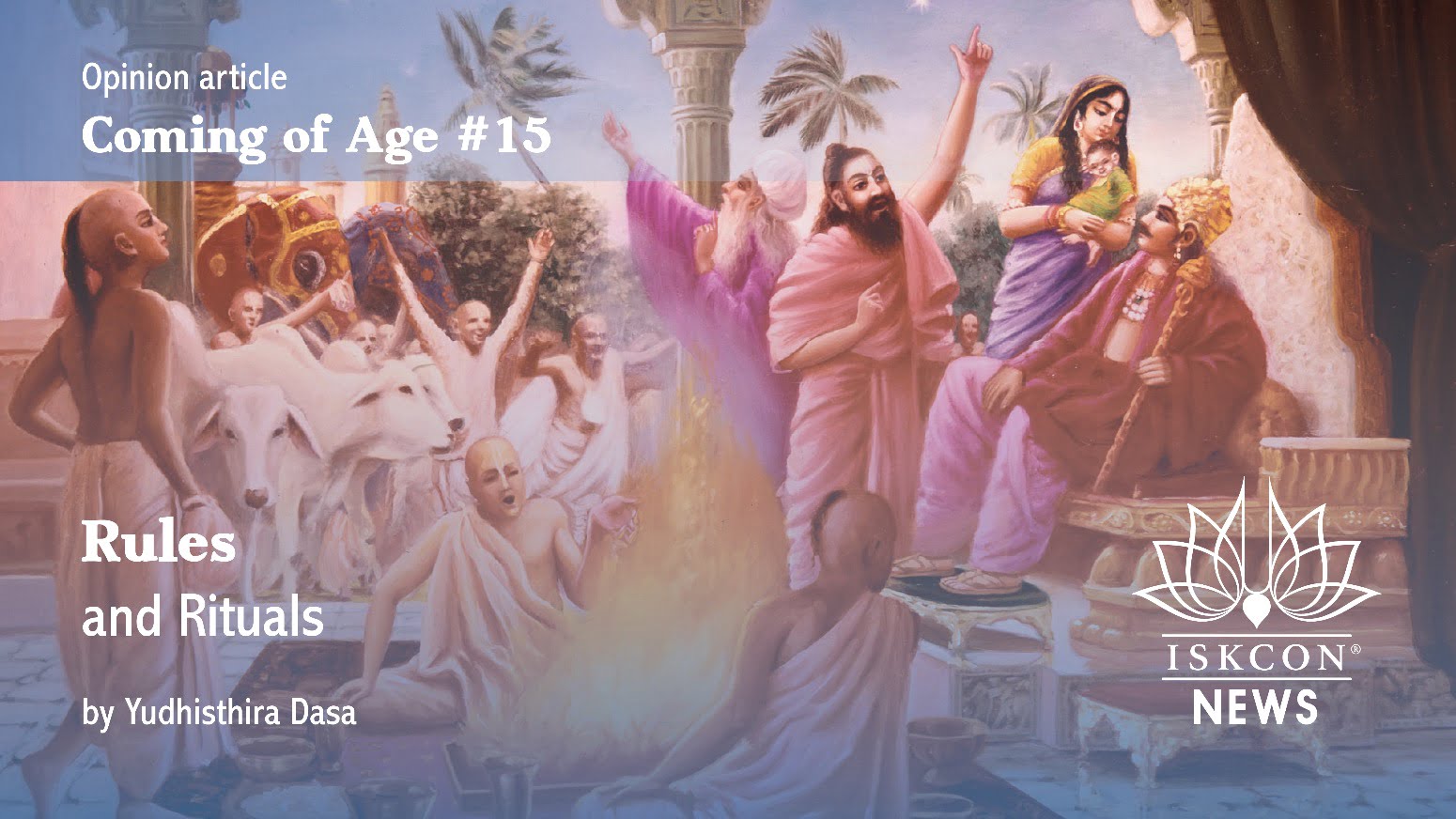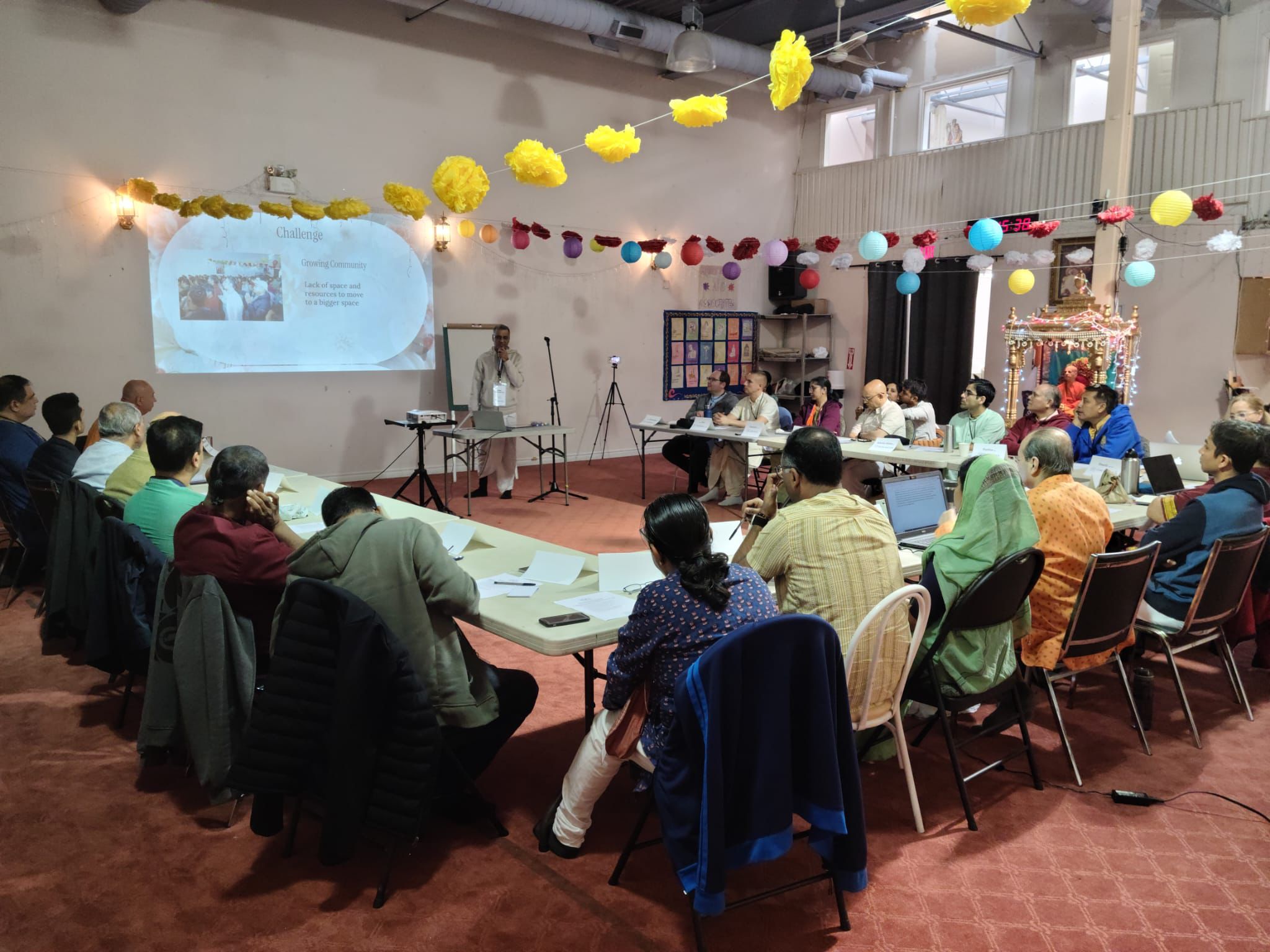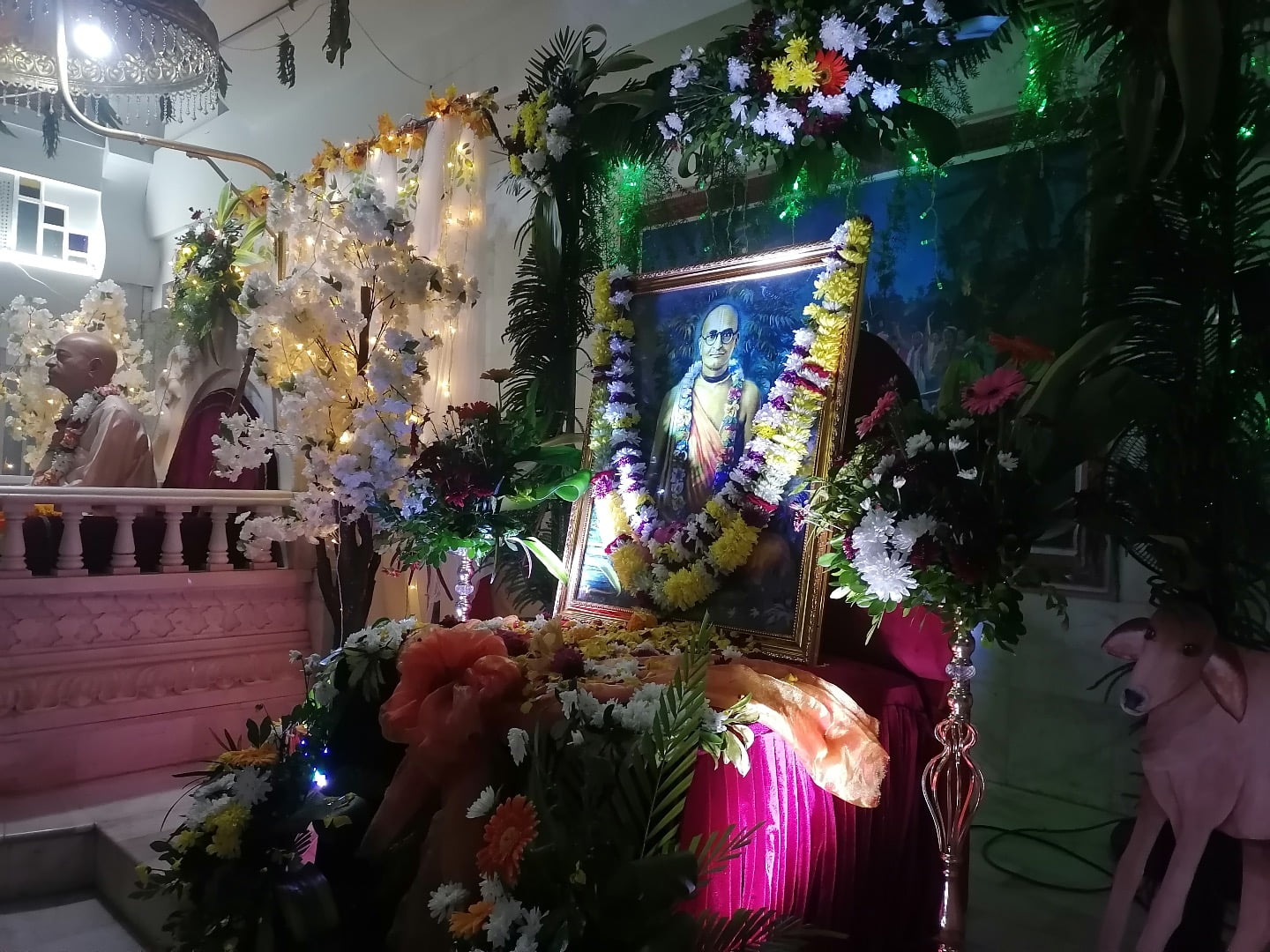The Attacks on the Bhagavad-gita in Russia
By Olessia Podtserob | Mar 10, 2012

Krishna describes Himself in the “Bhagavad-Gita” in the following way : “… among the dispensers of law I am YAMA” (Chapter 10, text 29). “I am all-devouring death…” (Ch.10, text 34). … “blazing fire”, with “fearful mouths” and teeth, “between which heads of some warriors are trapped and smashed” (Chapter 11, texts 26-27)».
Some Russian scholars, as well as prosecutors, understand from the above statements that “Krishna is personified in the teachings of Moscow Society for Krishna Consciousness as a deity of death and destruction”. They go on to accuse the Russian Hare Krishnas of many sins, which can be summed up with the word “extremism”.
The leader in the Expert Commission for Religious Examination at the Ministry of Justice, has recently visited Tomsk, the city in which the court case against “Bhagavad-Gita as it is” is being held. His visit started with a press-conference in the agency “Interfax-Siberia”, after which the professor gave lectures in Tomsk universities and theological seminaries.
Earlier the First Deputy Prosecutor General of the Russian Federation Alexander Buksman has said that the public prosecutor’s office considers elements of extremism not in the sacred text of the ancient masterpiece of the world philosophy – «Bhagavad-gita As It Is» – but in the comments of Bhaktivedanta Swami.
The Communications office of the Russian Society for Krishna Consciousness argues that it can be seen from materials of the case that the court was considering the whole book, not separate comments by Srila Prabhupada.
The experts of the Tomsk State University, on whose analysis of the “Gita” the accusation was based, found elements of extremism, for example, in connection with such terms in purports of Bhaktivedanta Swami Prabhupada as “thief, demon, fool, the ignorant”:
“In examined text there is often found a word “demon” (and its single-rooted formations) used with the purpose of identifying none-Krishnaites in broader sense (representatives of other lines of this religion, representatives of other religions, atheists). The word “demon” in Russian language means “evil spirit, fallen angel”, that is, contains a negative meaning and reflects reality perceived negatively by the public consciousness,” – is said in the expert conclusion of the Tomsk University experts.
However, argue the Hare Krishna lawyers, the terms that are being analyzed by the specialists, aren’t the author’s own commentaries. These terms are used in the original text of “Bhagavat-Gita” and are only commented by Srila Prabhupada.
For instance, in chapter 16, “The Divine And Demoniac Natures”, there is a detailed description of demons: “Pride, arrogance, conceit, anger, harshness and ignorance — these qualities belong to those of demoniac nature, O son of Pṛthā. Following such conclusions, the demoniac, who are lost to themselves and who have no intelligence, engage in unbeneficial, horrible works meant to destroy the world.”
So, according to the Society for Krishna Consciousness lawyers, the commentaries of the author Bhaktivedanta Swami are tightly connected with the definitions, given in the original text of “Bhagavat-Gita”, and don’t contain independent statements. The specialist and the prosecutor,” say the lawyers, “identifying above mentioned terms as extremist, draw public and court attention only to the commentaries, trying to conceal that in reality their claims turn towards the terms of the original text of the “Bhagavat-Gita”.
What is next in the battle over “Bhagavad-Gita”?
We will find out on March 20th, when the regional court will hear the appeal of the Prosecutor’s Office to the decision taken on December 28th by the Tomsk district court which held against the prosecutors’ request to recognize the book as extremist.
The article is written on the basis of publications at www.newsru.com and www.interfax-religion.com














